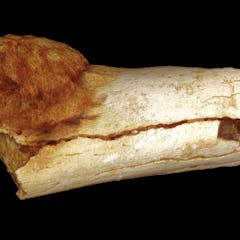
Articles on Cancer
Displaying 481 - 500 of 854 articles

So-called lifestyle diseases such as cancer and heart disease have been rising in Africa, adding to the already huge burden of disease in poor countries. But the research has not kept pace.

Aging and cancer appear to be closely linked, as over time, cells accumulate hits in their DNA code. But now research has turned to the role of RNA. Is RNA the key to a longer life?

The best way to prevent head and neck cancers, which are more common in men, is to get the HPV vaccine. It’s free for boys and girls aged 12 and 13.

By measuring a cancer cell’s DNA in the bloodstream, scientists can get a snapshot of the cancer itself, which is referred as a “liquid biopsy”.

A disease that we have known about for more than 100 years still defies proper description and a consensus on how to tackle it.

There is strong evidence that cannabis is useful for treating a range of conditions. Legalising small-scale cultivation is a start to helping those in need.

Cancer is not the modern disease many believe it to be. New fossil evidence from two South African caves suggests that its origins lie deep in prehistory.

In May this year, I led a paper published in Cancer Epidemiology, which looked at the incidence of brain cancer in Australia between 1982 and 2012. The first mobile phone call was made in Australia in…

One in ten cancer patients will face fertility issues after treatment, but less than 50% are given options to preserve fertility. And those who are offered options can face significant cost barriers.

Scientists are making the terrifying useful.

Many people in a large number of low and middle income countries now experience a ‘double burden’ of malnutrition.

Harsh tales of mothers and fathers thrust into the court system as they seek the best treatment for a sick child are a warning.

A longitudinal study featuring nearly 74,000 US women has found that the longer a woman has been overweight or obese during her adult life, the higher her risk of developing cancer.

What started with a study of diseases transmitted by mosquitos, could end with a new way of treating cancer.

Computer-aided decision-making has been shown to help in clinical contexts. But winning over doctors and patients is a different matter.

Cancer is a deadly disease and would have been particularly lethal before the recent development of effective treatments. So why didn’t it – or our susceptibility to it – die out long ago?

Chemicals that form in cooked food have been linked to cancer – but the full picture is more complicated.

Humans can more easily tolerate tumours in large or paired organs than in small, critical ones. This could be why the latter have evolved more cancer-fighting mechanisms.

The evidence appears contradictory – but there may be a good reason for this.

Despite the increase in cardiovascular disease in the developing world, not enough is being been done to improve public awareness of the benefits and harms of ‘good’ and ‘bad’ fatty acids.





